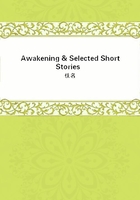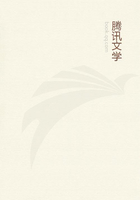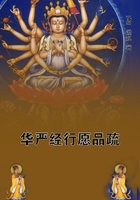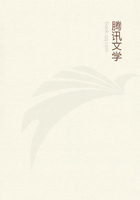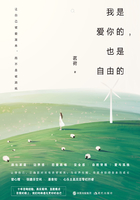On August 29, Charles again wrote to Oliva. He had heard that the Queen of Sweden was going to Rome. De la Cloche must not meet her, she might let out the secret: he must come home at once. If Charles is known to be a Catholic, there will be tumults, and he will lose his life. Another letter, undated, asks that the novice, contrary to rule, may travel alone, with no Jesuit chaperon, and by sea, direct from Genoa. Consulting physicians, the King has learned that sea sickness is never fatal, rather salutary. His travelling name should be Henri de Rohan, as if he were of that Calvinistic house, friends of the King. The story must be circulated that de la Cloche is the son of a rich preacher, deceased, and that he has gone to visit his mother, who is likely to be converted. He must leave his religious costume with the Jesuits at Genoa, and pick it up there on his return. He must not land at the port of London, but at some other harbour, and thence drive to town.*
Ut supra, 283-287.
On October 14, d'Oliva, from Leghorn, wrote to Charles that 'the French gentleman' was on the seas. On November 18, Charles wrote to d'Oliva that his son was returning to Rome as his secret ambassador, and, by the King's orders, was to come back to London, bearing answers to questions which he will put verbally. In France he leaves a Jesuit whom he is to pick up as he again makes for England.*
*Father Florent Dumas, in a rather florid essay on 'The Saintly Son of Charles II,' supposes that, after all, he had a Jesuit chaperon during his expedition to England (Jesuit Etudes de Rel., Hist. et Lit., Paris, 1864-1865).
The questions to which de la Cloche is to bring answers doubtless concerned the wish of Charles to be a Catholic secretly, and other arrangements which he is known to have suggested on another occasion.
After this letter of November 18, 1668, WE NEVER HEAR A WORD ABOUT JAMES DE LA CLOCHE.* No later letters from the King to d'Oliva are found, the name of James de la Cloche does not occur again in the Records of the Society of Jesus.
*Ut supra, 418-420.
Father Boero argues that James would return to London, under a third name, unknown. But it would be risky for one who had appeared in England under one name in 1665, and under another (Rohan) in 1668, to turn up under a third in 1669. To take aliases, often three or four, was, however, the custom of the English Jesuits, and de la Cloche may have chosen his fourth. Thus we could not trace him, in records, unless Charles wrote again to d'Oliva about his son. No such letter exists. In his letter of November 18, Charles promises, in a year, a subscription to the Jesuit building fund--this at his son's request. I know not if the money was ever paid. He also asks Oliva to give James 800 doppie for expenses, to be repaid in six months.
James did not leave the Society of Jesus, argues Father Boero, for, had he left, he would have carried away the papers in which Charles acknowledges him and promises a pension of 500 pounds yearly. But that document would be useless to James, whether he remained a Jesuit or not, for the condition of the pension (1667) was that he should be a Protestant of the Anglican sect, and live in London.
However, Charles's letter of 1668 was in another tune, and James certainly left THAT with the Jesuits in Rome; at least, they possess it now. But suppose that James fled secretly from the Jesuits, then he probably had no chance of recovering his papers. He was not likely to run away, however, for, Charles says, he 'did not like London,' or the secular life, and he appears to have returned to Rome at the end of 1668, with every intention of fulfilling his mission and pursuing his vocation. His return mission to England over, he probably would finish his Jesuit training at a college in France or Flanders, say St. Omer's, where Titus Oates for a while abode. No James de la Cloche is known there or elsewhere, but he might easily adopt a new alias, and Charles would have no need to write to Oliva about him. It may be that James was the priest at St. Omer's, whom, in 167O, Charles had arranged to send, but did not send, to Clement IX.* He may also be the priest secretly brought from abroad to Charles during the Popish Plot (1678-1681).**
*Mignet, Neg. rel. Succ. d'Espagne, iii. 232.
**Welwood, Memoirs, 146.
These are suggestions of Lord Acton, who thinks that de la Cloche may also have been the author of two papers, in French, on religion, left by Charles, in his own hand, at his death.* These are conjectures. If we accept them, de la Cloche was a truly self- denying young semi-Prince, preferring an austere life to the delights and honours which attended his younger brother, the Duke of Monmouth. But, just when de la Cloche should have been returning from Rome to London, at the end of 1668 or beginning of 1669, a person calling himself James Stuart, son of Charles II., by an amour, at Jersey, in 1646, with a 'Lady Mary Henrietta Stuart,' appeared in some magnificence at Naples. This James Stuart either was, or affected to be, James de la Cloche. Whoever he was, the King's carefully guarded secret was out, was public property.
*Home and Foreign Review, i. 165.
Our information as to this James Stuart, or Giacopo Stuardo, son of the King of England--the cavalier who appears exactly when the Jesuit novice, James de la Cloche, son of the King of England, vanishes--is derived from two sources. First there are Roman newsletters, forwarded to England by Kent, the English agent at Rome, with his own despatches in English. It does not appear to me that Kent had, as a rule, any intimate purveyor of intelligence at Naples. He seems, in his own letters to Williamson,* merely to follow and comment on the Italian newsletters which he forwards and the gossip of 'the Nation,' that is, the English in Rome. The newsletters, of course, might be under the censorship of Rome and Naples. Such is one of our sources.**
*See 'The Valet's Master,' for other references to Williamson.
**State Papers, Italian, 1669, Bundle 10, Record Office.

